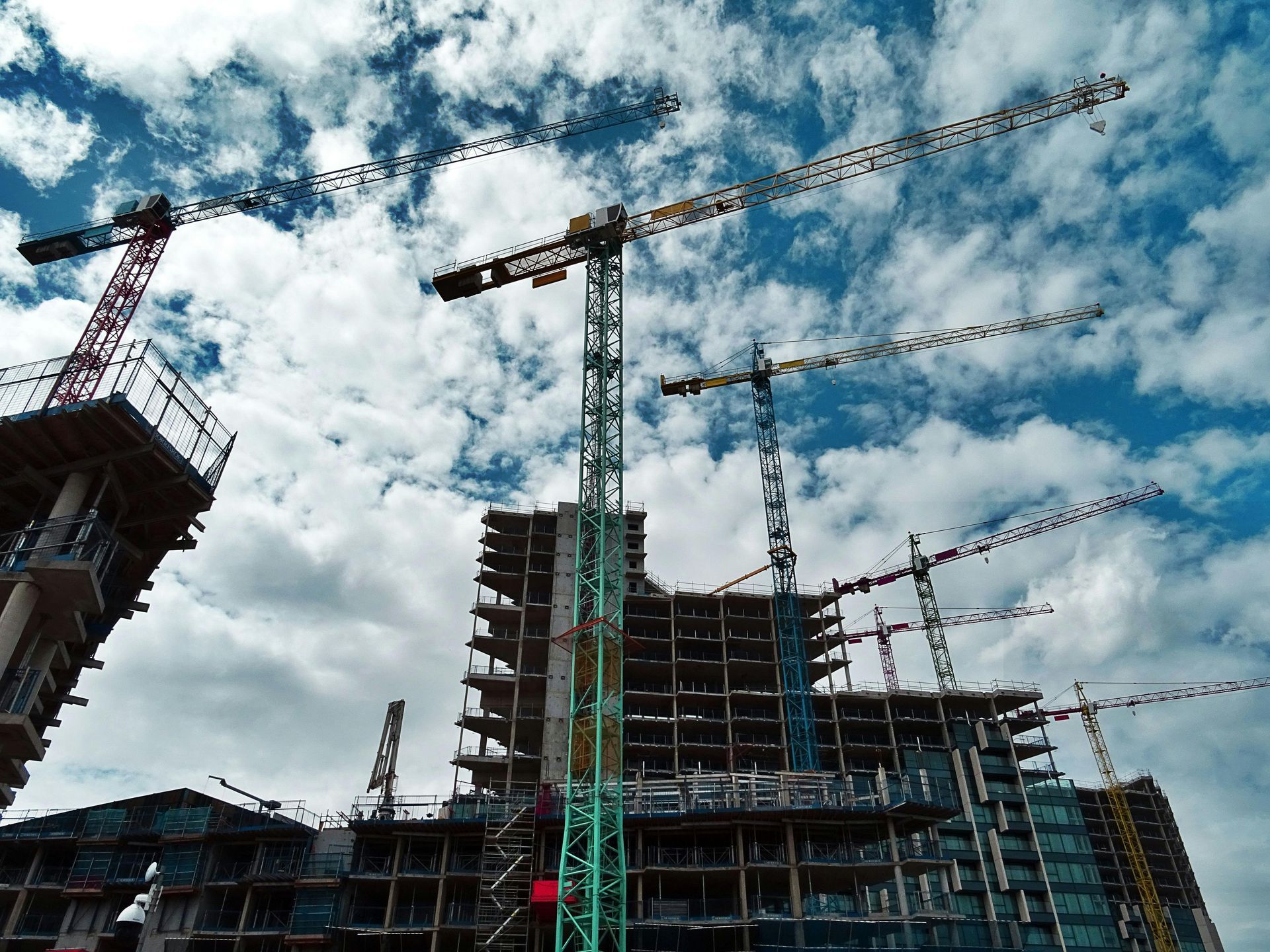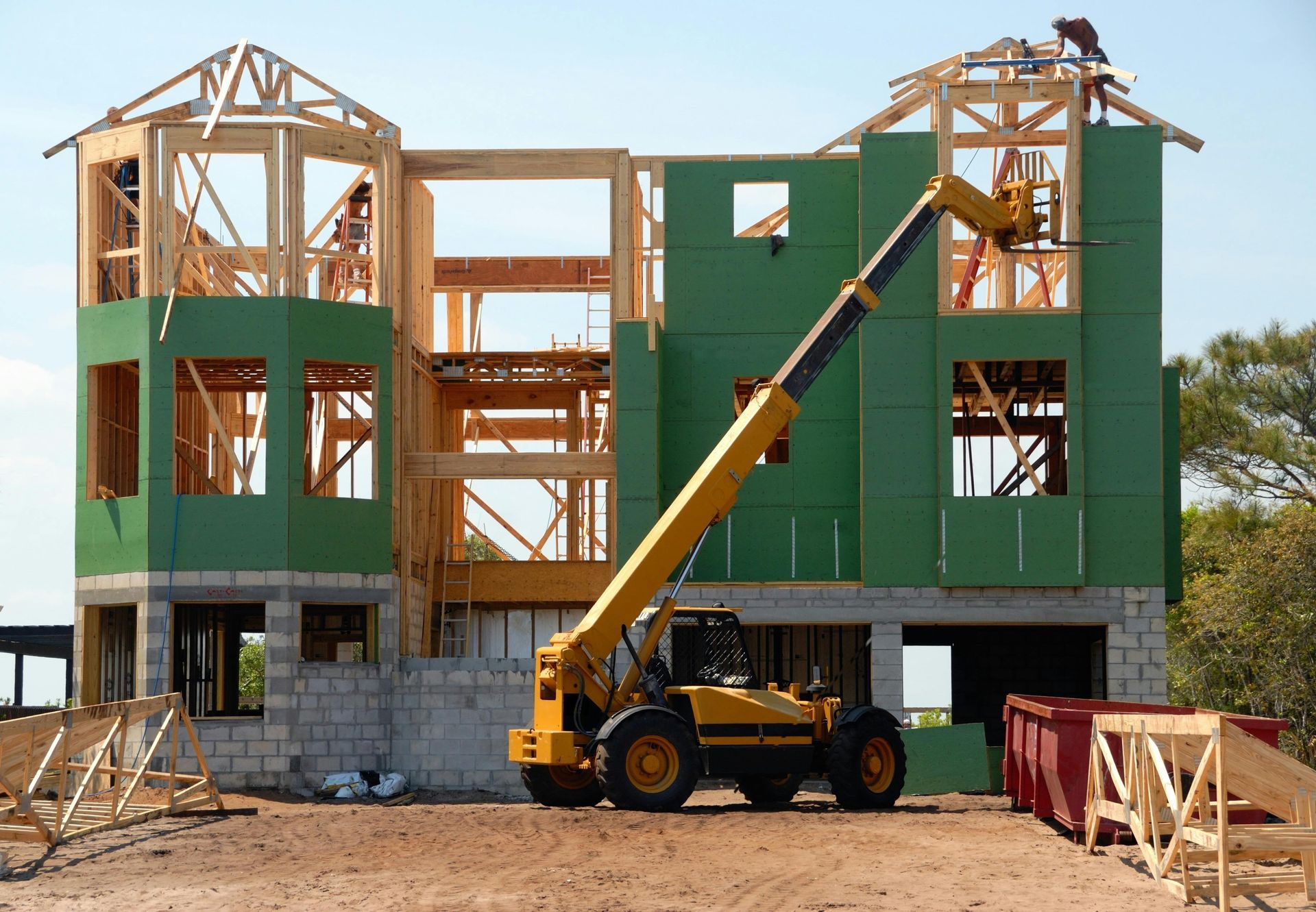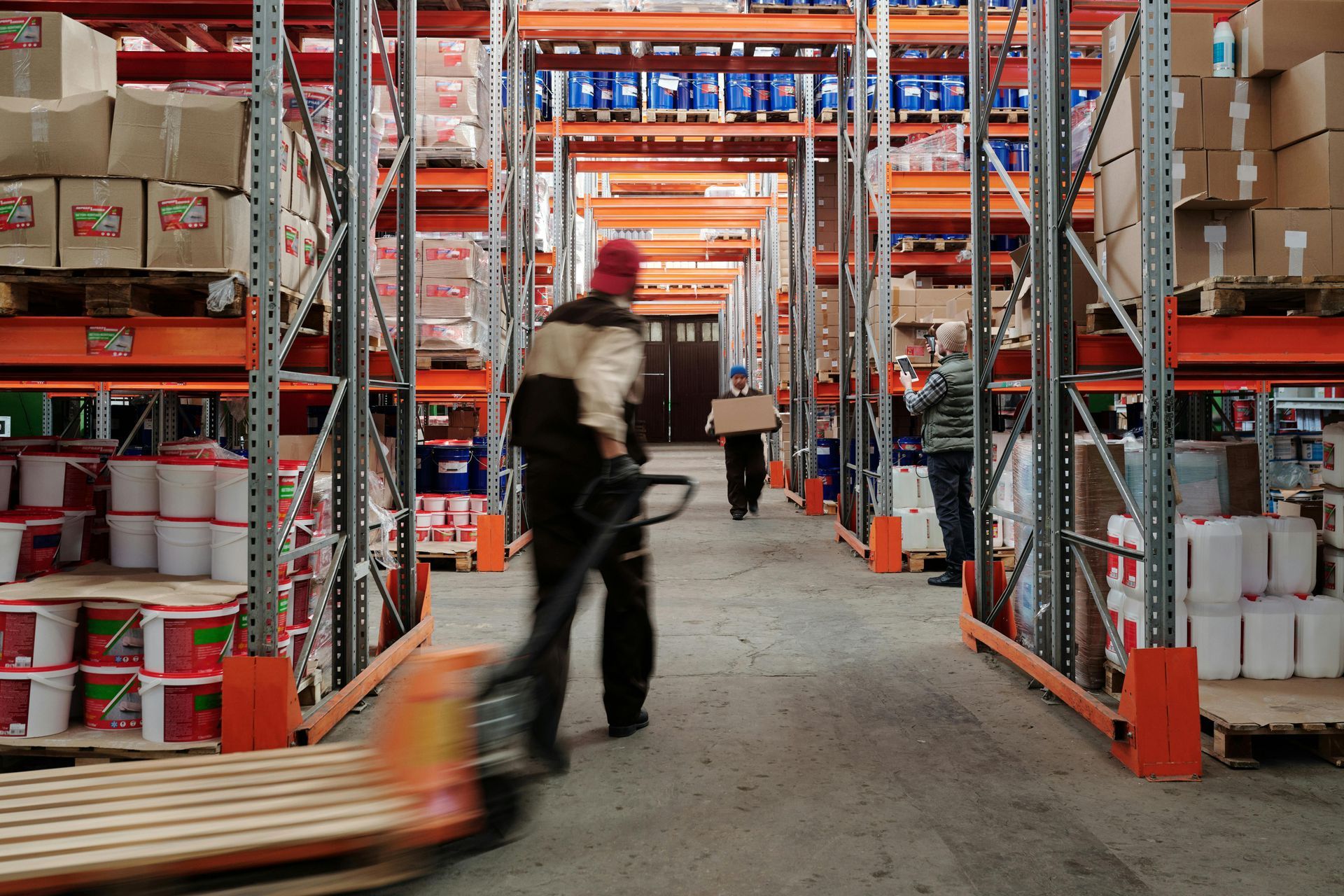The Hidden Costs of Unreliable Logistics and How to Avoid Them
In the fast-paced world of construction, logistics are the backbone that ensures materials and equipment arrive on time, allowing projects to stay on schedule. But what happens when logistics fail to deliver? Unreliable logistics can wreak havoc on a project’s timeline, budget, and overall success. While the immediate consequences of late deliveries or damaged materials may be apparent, many hidden costs can accumulate in the background, impacting your bottom line and client relationships.
These hidden costs often go unnoticed until it’s too late—whether it's the overtime costs for idle workers, the financial penalties for missed deadlines, or the loss of future business due to a damaged reputation. In this article, we’ll explore the hidden costs of unreliable logistics in construction and how you can avoid them by choosing the right logistics partner.
1. Delays and Missed Deadlines: The Domino Effect
The most obvious and immediate consequence of unreliable logistics is delayed deliveries, which can lead to missed deadlines. In construction, timing is everything—each phase of a project depends on the successful completion of the previous one. When materials, equipment, or tools don’t arrive on time, the entire workflow can come to a standstill, triggering a domino effect that affects the entire project.
The hidden cost here is the loss of productivity. Every day that materials are delayed, workers are either sitting idle or being redirected to less critical tasks. Idle labor still costs money, and that cost quickly adds up. Beyond labor, delayed deliveries also affect your ability to meet contractual deadlines, leading to financial penalties and legal complications.
How Delays Add Hidden Costs:
Idle Labor Costs: Workers left without the materials or tools they need can’t perform their jobs. While you’re still paying their wages, they aren’t generating value for the project.
Increased Project Costs: Delays can stretch project timelines, increasing rental fees for equipment or extending the contract of subcontractors. These additional expenses are rarely anticipated in the original budget.
Late Penalties: Many construction contracts include clauses for financial penalties if deadlines are missed. These penalties can range from late fees to reduced final payments, hurting your profitability.
How to Avoid It:
The key to avoiding delays and missed deadlines is choosing a logistics partner with a proven track record for on-time deliveries. Look for logistics providers who offer real-time tracking, allowing you to monitor the progress of shipments and adjust your schedule accordingly. Proactive communication between your logistics provider and your project managers can help mitigate delays by ensuring that all parties are aligned with the delivery schedule.
2. Rework and Material Waste: The Cost of Poor Handling
Unreliable logistics doesn’t just refer to late deliveries—poor handling of materials during transport can lead to damaged goods. In construction, materials like steel beams, concrete slabs, glass, and lumber are essential and often expensive. If these materials arrive damaged, the project faces immediate setbacks.
The hidden cost in this scenario is rework. Damaged materials must be reordered, causing further delays, and if damaged materials are used by mistake, it can lead to poor craftsmanship that needs to be corrected later. Additionally, reordering materials incurs additional expenses for expedited shipping, doubling up on transport costs, and wasting valuable time.
How Material Waste Adds Hidden Costs:
Reordering Expenses: You’ll need to reorder damaged materials and often pay for rush deliveries to minimize downtime, increasing the overall cost of the project.
Rework and Labor Costs: If the damage isn’t caught right away, workers might proceed with installation, only to realize later that the materials are faulty, leading to costly rework.
Storage Issues: Damaged or excess materials take up space on-site, making the job site less efficient and more hazardous for workers.
How to Avoid It:
To avoid these hidden costs, partner with a logistics provider that prioritizes safe handling and proper securing of materials during transport. Ensure that your provider uses appropriate vehicles for heavy or oversized items, and verify that materials are protected with tarps or packaging to prevent weather damage. Regular communication and quality assurance checks upon delivery can also help minimize material waste and rework.
3. Increased Project Management Time
When logistics go wrong, project managers often have to spend time resolving issues, from tracking down delayed deliveries to coordinating replacements for damaged materials. This takes time away from their other responsibilities, such as overseeing the project, managing subcontractors, and ensuring the quality of the work being done.
The hidden cost here is the additional project management time required to address logistical problems. While this may not show up directly as a line item on the budget, the loss of efficiency and increased labor hours can contribute to overall project delays and budget overruns.
How Logistical Problems Add Hidden Costs:
Distraction from Core Responsibilities: Project managers spend more time resolving delivery issues and less time overseeing the actual construction, leading to inefficiencies on the job site.
Communication Breakdowns: Misaligned logistics often lead to communication breakdowns between project managers, subcontractors, and suppliers, further delaying work and causing confusion.
Overextended Teams: When logistics go wrong, project managers and their teams must stretch their efforts to resolve problems, leading to potential burnout and a decrease in overall productivity.
How to Avoid It:
To minimize the hidden costs associated with logistical problems, choose a logistics provider that offers efficient communication channels and real-time updates on deliveries. This allows project managers to stay informed without constantly needing to chase down answers, saving valuable time and allowing them to focus on their primary responsibilities.
4. Damage to Reputation and Client Relationships
Unreliable logistics doesn’t just impact the project itself—it can also harm your business’s reputation and client relationships. Delays, rework, and cost overruns reflect poorly on your ability to deliver projects on time and within budget. Clients may become frustrated, lose trust, and be less likely to hire you for future projects or recommend your services to others.
The hidden cost in this scenario is the loss of future business. While you might be able to salvage the current project, the long-term damage to your reputation can result in lost opportunities. Word-of-mouth referrals are crucial in the construction industry, and negative experiences can travel quickly, affecting your ability to secure new contracts.
How Reputation Damage Adds Hidden Costs:
Loss of Client Trust: Clients who experience delays or poor craftsmanship due to logistical issues may choose not to work with your company again.
Reduced Future Opportunities: A damaged reputation can result in fewer referrals and lost bids on future projects.
Lower Profitability: Satisfied clients are more likely to pay full price, offer repeat business, and refer you to others. When logistics fail, you may lose these opportunities for long-term profitability.
How to Avoid It:
To maintain a strong reputation and build long-lasting client relationships, prioritize working with a logistics provider that values reliability, transparency, and communication. A logistics partner that consistently delivers on time, handles materials with care, and keeps you informed will help you avoid project delays and protect your reputation with clients.
5. Increased Insurance and Liability Costs
When logistics fail, the risk of accidents, damage, or loss increases, often leading to higher insurance and liability costs. Poorly handled or improperly secured materials can cause accidents during transportation, resulting in damage to vehicles, injuries to workers, or even legal liabilities if third parties are involved.
The hidden cost in this scenario is the increased cost of insurance claims or liability fees, which can impact your overall project budget and long-term insurance premiums.
How Poor Logistics Add Hidden Costs:
Increased Liability Risks: Poorly secured or damaged materials can lead to accidents, increasing your exposure to legal and financial liabilities.
Higher Insurance Premiums: Frequent claims or incidents caused by unreliable logistics can lead to higher insurance premiums for your business.
Additional Safety Hazards: Delayed or damaged materials increase the risk of on-site accidents, creating additional safety concerns that could result in work stoppages or injury-related claims.
How to Avoid It:
Avoid these hidden costs by working with a logistics provider that prioritizes safety and compliance. Ensure that your logistics partner follows all industry regulations, uses proper securing methods, and employs trained drivers who understand the specific challenges of transporting construction materials. By minimizing the risk of accidents, you can avoid increased liability and insurance costs.
How to Choose a Reliable Logistics Partner
Now that we've explored the hidden costs of unreliable logistics, how do you avoid them? The key is to choose a logistics partner that understands the unique needs of the construction industry and has a proven track record of delivering results.
Factors to Consider When Choosing a Logistics Provider:
On-Time Delivery Rates: Look for a provider with a history of meeting deadlines and offering on-time deliveries.
Communication and Tracking: Choose a logistics partner that offers real-time tracking and clear communication throughout the delivery process.
Experience in Construction Logistics: Ensure your provider has experience in handling construction materials and understands the challenges of transporting heavy, oversized, or fragile items.
Safety and Compliance: Prioritize logistics providers who follow industry best practices for safety and compliance, reducing the risk of accidents or damaged materials.
By selecting a logistics provider that meets these criteria, you can avoid the hidden costs of unreliable logistics and keep your projects on schedule and within budget.
Conclusion
Unreliable logistics can lead to a range of hidden costs, from delays and rework to damage to your reputation and increased liability risks. However, these costs can be avoided by choosing a logistics partner that values reliability, communication, and safety. By partnering with a provider that understands your










All Rights Reserved | ASK Logistix